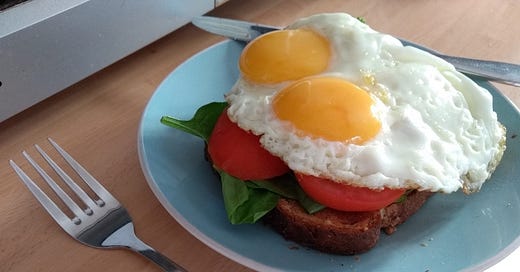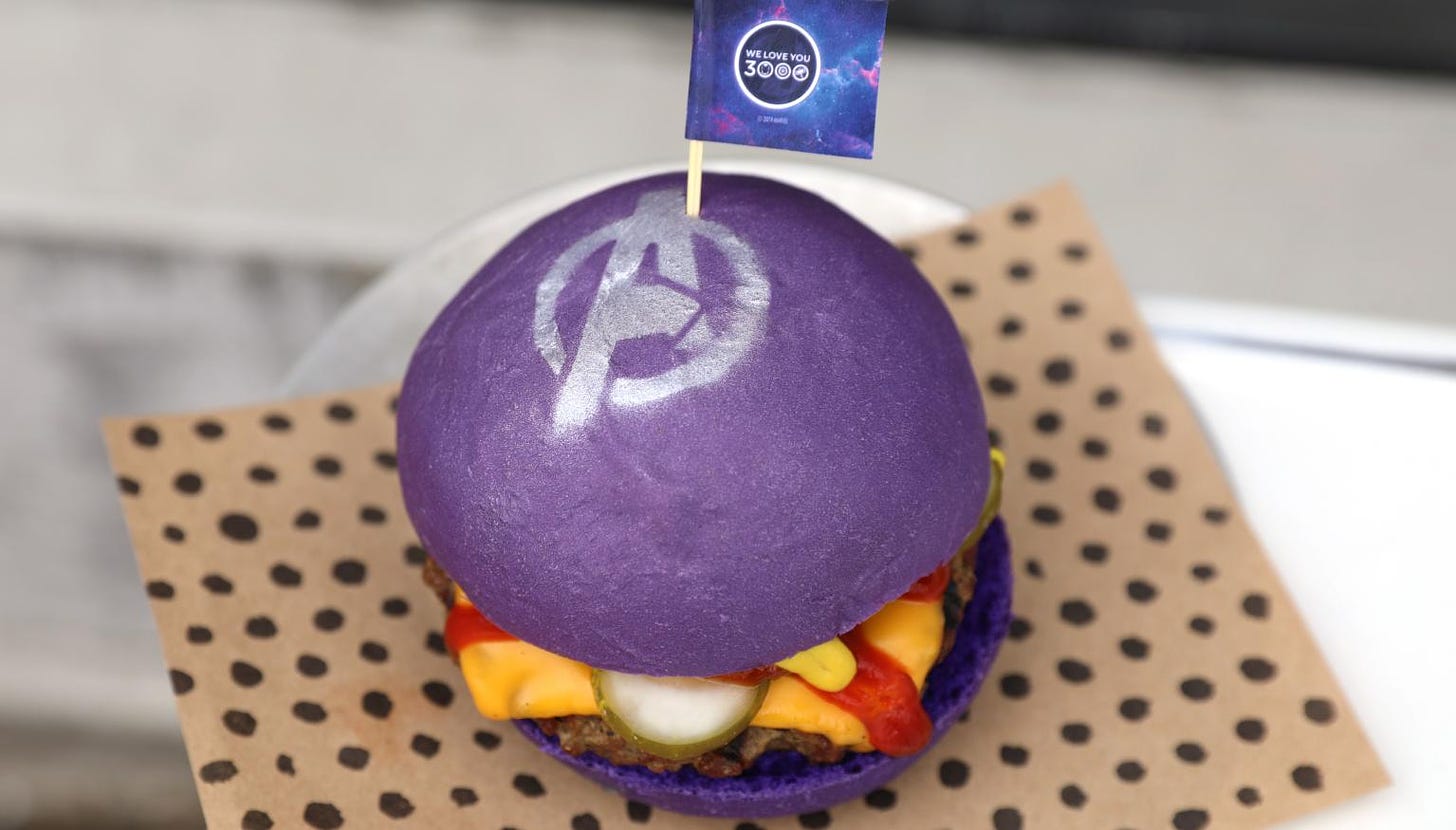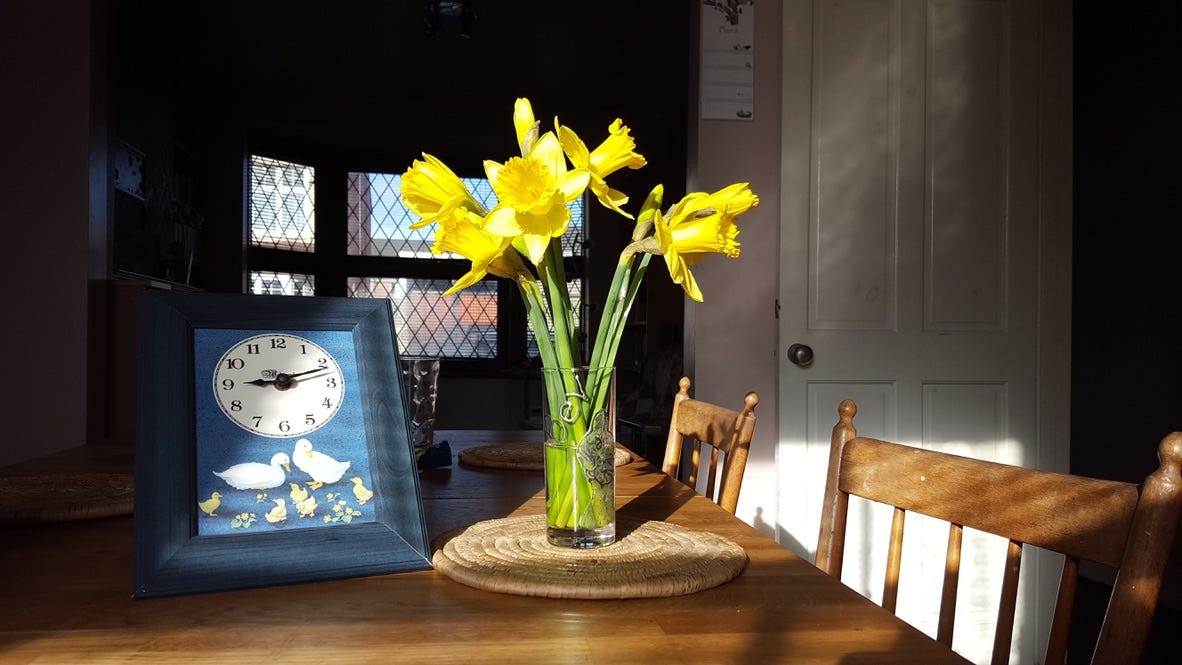Imagination is for everyone
What does it mean to say that we're all creative? Everyday imagination and recognising the fallacy of "I'm not a creative type".
This newsletter is all about imagination, how imagination is how we see that reality is “bigger on the inside”, to the relationship between imagination and Christian faith, to how imagination can be used and abused in times of war.
But who is this discussion for? I imagine that a lot of you who have subscribed might be artists or writers or other “creative types”. It’s great to have you reading if so, but I hope that these themes will connect beyond that. Writing about imagination can imply or attract a readership that’s self-consciously ‘creative’. But that can obscure an important truth:
Imagination is for everyone
We are all creative, even if you might not feel like it.
It might not be obvious to you what outlet you have for creativity in a hectic, practical life, but creativity isn’t just about great works of art, as valuable as those are. Imagination is in fact an everyday necessity for being human.
Food for our souls
Assuming that imagination is only of interest to artists is a bit like assuming that food is only of interest to professional chefs, or dedicated “foodies”.
Some people may make a profession or a hobby of cooking.
But we all need to eat daily.
While it’s possible to exist purely on ready meals and takeaway, it’s not a particularly healthy way of living. We all benefit from being able to cook some basic meals, for ourselves and for others.
Just as we all need food for the body, we all need imagination as food for our souls. Beauty and creativity aren't optional extras, but fundamental human needs. And while we might not all be artists or creators professionally or even as hobbyists, we are all happier, healthier and more human if we are able to nurture some basic creativity, both for ourselves and for others.
Beyond ready-meal imagination
Imagination is also fundamental to how we perceive the world. We need to curate our imaginations – choose the stories that shape the way we encounter and interpret reality. We aren’t all nutritionists, but we can pay attention to what’s a healthy, balanced diet to feed our imaginations so that we engage well with the world around us.
It’s fine to have some escapist ‘junk food’ in moderation, for example, but we also need meat and potatoes – stories with weight and quality that will broaden our minds as human beings.
We sustain ourselves on stories and songs, novels and movies and tv shows, on fashion and technology and any of the hundreds of other expressions of human creativity. Generally speaking in the West, we have an abundance of creative output available for us to consume. It's great that we can so easily access so much creative content.
But if we only consume what others have made, particularly mass produced culture, then our souls are missing out on something important. Even if our own efforts seem paltry and faltering compared to what’s available to us on a global stage, there is value in our own creativity simply for it being our own.
Life off autopilot
Everyday creativity means investing what we do with attention and meaning. Creativity is living life with our autopilot turned off. It’s take a few moment to enjoy and adorn everyday activities with something extra, a flourish beyond the functional and necessary.
Creativity isn’t just art, but the spice we add to everyday living.
Perhaps it’s thinking about the colours and composition of the clothes you put on in the morning.
Or it could be taking a moment longer on writing an email for work to make the recipient smile when they read it.
It might be putting flowers from the garden on the table before a meal.
It could be the meandering story made up on a long journey to entertain the kids.
Perhaps it’s making the effort to add elegance to functionality, whether that’s in the layout of your home, to the design of a spreadsheet, or the construction of computer code.
It might be the birthday present chosen with care, that shows we’ve imagined what might delight a friend.
Nurturing your creative shoots
Whatever it is for you, take the time to identify the opportunities you have to cultivate creativity, to add a bit of imagination. The green shoots of your creativity might seem small and fragile compared to others around you, or people of great talent you follow on social media or on TV. But however small your own creative seed might be, it’s worth nurturing it.
Creative attentiveness shows that we value the world around us, and the people in it. Imagination enriches all of life.
We are all creative, whether we recognise it or not – so let’s celebrate and cultivate our imaginations in the everyday.
What are your favourite examples of everyday imagination and creativity? Where do you add that extra creative something to the ordinary things you do? Leave a comment – I’d love to hear your ideas!






